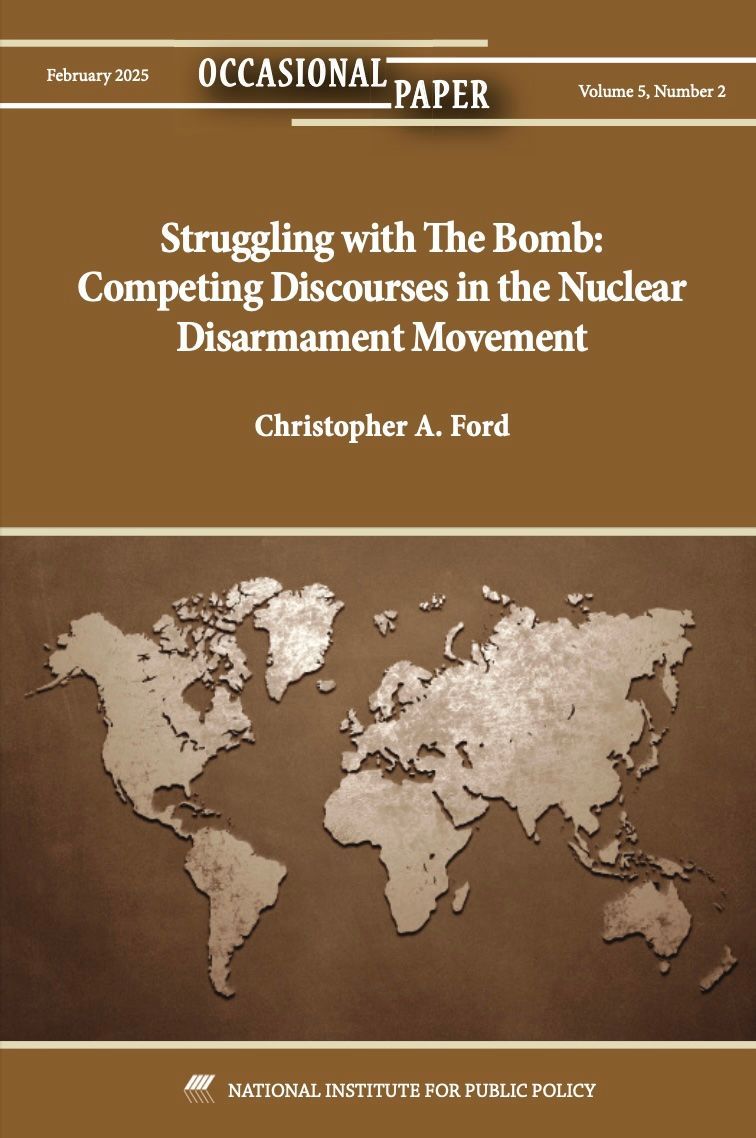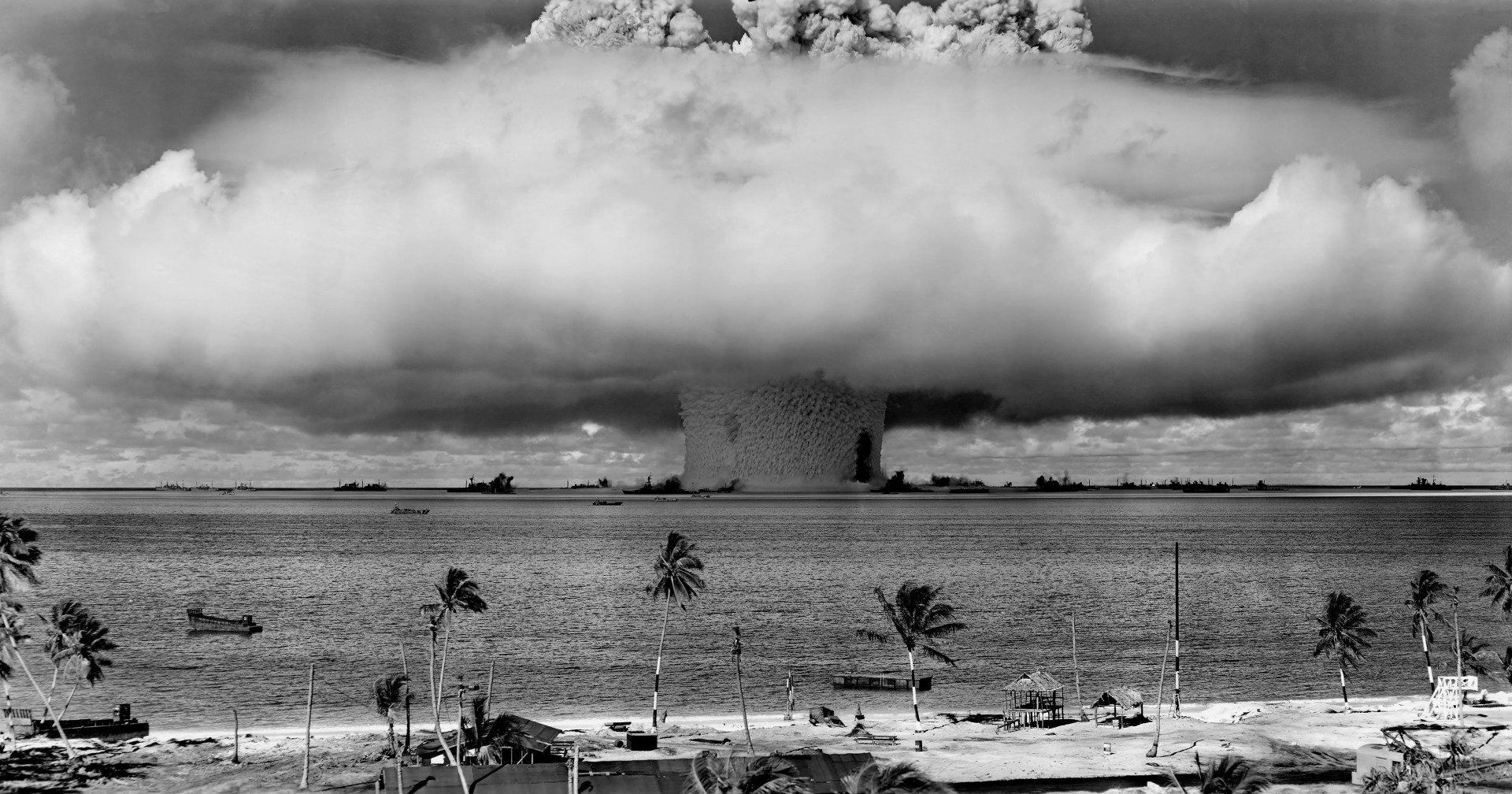The Foreign Policy Debate and the “Incredible Shrinking Obama”
Note:
Below follows the text of remarks Dr. Ford gave to an event at Hudson Institute on the morning of October 23, 2012.
Last night’s televised debate between President Barack Obama and Governor Mitt Romney (October 22) highlighted the phenomenon of the “Incredible Shrinking Obama.” It’s not precisely news that the president’s image has taken a beating since he promised that his “transformative” administration would not only slash the federal deficit and cut unemployment to five percent but also that his inauguration would be remembered as “the moment when the rise of the oceans began to slow and our planet began to heal.” Nonetheless, it was remarkable to see him – two weeks before the 2012 vote – still trying to run against George W. Bush, all but pleading with voters to accept that things really will at least start to look less grim if only he can please have a little more time.
On the whole, I thought President Obama debated foreign policy reasonably well last night, which is what one presumably should expect from the man to whom both the State and Defense Departments have reported for the last four years. And there were some interesting points and contrasts. I jotted down a few notes to myself:
- Neither candidate seems to view the People’s Republic of China as a “competitor” with us in any way except in economic terms, or at least is willing to say so. (Between the two men, it was ironically Obama who seemed closet to articulating a broader competitive viewpoint – though hardly a real strategy – mentioning the need to have a strong regional “presence,” to ensure freedom of navigation, and to use alliances with regional powers to make sure China “plays by the rules.”) But neither man’s expressed vision of Beijing as a competitor gave any appearance of extending beyond jobs, currency, and trade balances.
- Romney declared that a “nuclear Iran” was our gravest national security threat, while Obama said that the greatest threat comes from terrorist networks – which was odd, since the president also spent a lot of time trying to argue that he had “decimated” the leadership of our main terrorist adversaries, weakened them, and put them on the run.
- Romney emphasized the threat of Iran’s nuclear “capability” and at one point mentioned weapons and the possession of nuclear material as being problems. Obama, however, only referred to the objective of preventing Iran from getting a nuclear weapon per se , and indeed spoke favorably about how “inspections” could help resolve the problem. The president, furthermore, couldn’t decide whether or not it’s his policy to have direct talks with Iran, even as he made clear that a nuclear Iran isn’t as grave a threat to our interests as Romney believes. Could this presage just what some observers have been speculating about for some time: a future Obama concession to permit low-level uranium enrichment under IAEA safeguards? One should be careful not to over-read comments perhaps made imprecisely in the heat of debate, and Obama did say that “the deal we’ll accept is they’ll end their nuclear program,” but perhaps he means only their “weapons” program. (This is a somewhat specious distinction in this case, but it is one that U.S. intelligence officials have periodically suggested since 2007.) It may be that these nuances on Iran have real significance.
- Obama had a well-prepared snarky comeback to Romney’s comments about collapsing U.S. naval strength, sneering at his opponent as if Governor Romney had never heard of aircraft carriers and nuclear submarines. Most media commentators (surprise!) liked Obama’s riposte, but it suggests more cleverness than wisdom. Our Commander in Chief apparently thinks both that it doesn’t matter what the actual size of our fleet is and that actually having ships in the U.S. Navy is as obsolete as relying upon “horses” or “bayonets.” (This may tell us something about the likely sustainability of Obama’s Pacific “pivot.”)
- Romney wants to develop a broad counter-jihadist political strategy in the Middle East, but Obama talks only about going after terrorists per se. (Perhaps admitting that we need such a strategy is impossible for the president because it suggests that Islamist ideology, rather than past U.S. misdeeds, is actually the problem.)
- Only Romney responded in any way to moderator Bob Schieffer’s framing comments about the Cuban Missile Crisis (half a century ago this month) and the possibility that something grave and unexpected may arise for any president. In talking about the size of the Navy, Romney stressed the need to plan against future uncertainty by keeping our military large and strong. (This was as close to a Herman Kahn scenario-planning perspective as we were privileged to see last night.)
- Nobody wanted to talk about arms control, climate change, North Korea, or the European Union (EU). The closest reference to the EU we saw last night was in a couple of Romney comments suggesting that Obama’s towering deficits and domestic spending are putting us on the road to “Greece.” Nor did nuclear disarmament come up, either pro or con – which was interesting, since Obama earlier made such showy promises in this regard, and was given the Nobel Peace Prize for them. (My, how the bloom has come off that rose!)
- Romney had an interesting focus at one point on trade promotion with Latin America, which he described as having (collectively) a huge economy almost comparable to that of China.
- Both men all but fell over themselves to argue that the key to almost every foreign policy issue is getting our own economy going again.
- I doubt that Bob Schieffer’s verbal slip about the death of “Obamas bin Laden” will make the edited transcripts, but it made me laugh aloud.
So what should one make of all this beyond this kind of mere issue-spotting? A debate like this is probably a pretty poor opportunity to learn anything really deep about either candidate. Nevertheless, as I noted, the Barack Obama of 2012 clearly does not appear to be – and may not, at this point, even see himself – as the soaring and transformative figure he was portrayed as being four years ago.
By no means uniformly, but at least repeatedly, Obama came into office with an almost pathologically positive, quasi-messianic view of his own personal exceptionalism, and a negative vision of America’s exceptionalism. He was convinced that the problems the United States confronted around the world were largely of America’s own making – the result of our power and socio-cultural “insensitivity” in the world – and that by conceding our culpability and showing politically-correct sensitivity, and by virtue of Obama simply being Himself , the world would in effect spontaneously re-order itself in congenial ways. Tough choices would not be needed, compromises would not have to be made, and a policy of general global retrenchment would actually not impose costs to U.S. interests and national security because everything would simply be better now that the right person was finally in charge in Washington. It was all about him. (I once called Obama our “Solipsist-in-Chief.”)
One can still see faint echoes of this in President Obama’s arguments. In defending his record last night, he repeatedly claimed that his administration had been able to change attitudes towards America overseas and to heal divisions in the world, and that the “credibility” we have gained from such healing better equips us for further leadership. But these were more assertions than descriptions, and the president offered no actual evidence of such a global attitudinal renaissance to rebut Romney’s comments about a “rising tide” of confusion and chaos, especially in the Middle East – which, of course, turns out not to have been magically fixed by Obama’s June 2009 speech in Cairo lamenting that American “fear and anger” had previously led us “in some cases” to “act contrary to our ideals.” (That, by the way, was from Obama’s “apology tour” that Governor Romney criticized, and which Obama denied had ever taken place. Judge for yourself who told the “whopper.”) Obama’s comments about the healing effect of his own presence in the world last night had the stale, flat tone of a mantra that he needs to go through the motions of repeating, but that no one really takes very seriously anymore.
This may be important. The election is now two weeks away, but at least as far as foreign policy and national security issues are concerned, it gives every appearance of now having turned into an “ordinary” election. With the ideological enthusiasms and transformative delusions of four years ago having been painfully discredited, stymied by the complications of life in the real world, Obama is now a “normal” candidate: a flawed man with a checkered record, still campaigning against his long-retired predecessor and asking to be permitted to have more time in which to make plodding progress.
Obama might yet win, of course, and be given that additional time. All the stuff about moralistic transformation has dribbled away, however, and the foreign policy and national security questions that divide the two candidates – and judging by last night’s debate there are rather fewer of those than one might have expected – revolve largely around who is better suited to managing the day-to-day challenges (and potential surprises) of living in a complex and sometimes very dangerous world. This is not a bad thing: self-anointed messiahs make dangerous and foolish presidents.
Obama may still nurse ambitions to try something big and dumb if reelection removes him from further electoral accountability, of course – a possibility to which Romney alluded in making a crack about Obama having reassured the Russians that we would have more “flexibility” in arms negotiations after the election. That said, the president showed no sign of such predilections last night, at least. On the whole, while an objective observer would probably find that Obama debated marginally better on points, this “normalization” of the foreign policy discourse probably favors Governor Romney. Obama’s debating performance, while capable, underscores how special it is now clear that he himself isn’t.
Romney missed several opportunities to skewer Obama on various issues, but erring on the side of caution and presidential gravitas was for Romney surely wiser, under the circumstances, than showing the kind of frenetically desperate combativeness that Obama and Vice President Biden have displayed ever since Obama’s fatigued detachment in the first debate. If last night’s show demonstrates that this is indeed now a “ordinary” election from the perspective of foreign policy and national security issues, Obama’s pithy debating counter-punches last night may turn out to have represented only a Pyrrhic victory. (Americans enjoy watching good debaters, but they are electing a President and Commander-in-Chief.)
It is anybody’s guess at this point who will actually win, for the polls show basically a dead heat and foreign policy issues are not the focus of most voters’ attention. But while Governor Romney could have done better last night, he did accomplish the most important thing he needed to do: he showed himself to be an eminently plausible alternative to the wearily prickly Obama.
-- Christopher Ford








